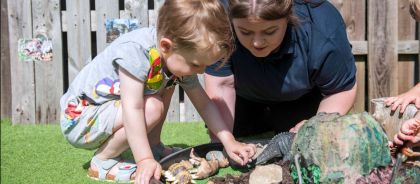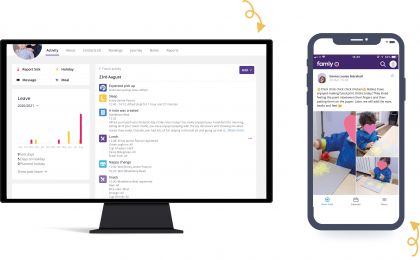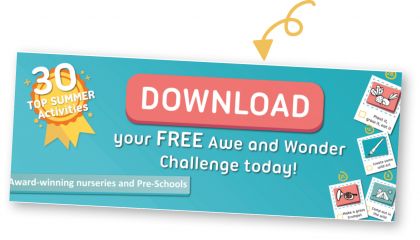
Blog
EYFS Reforms - Observations, Assessments and Planning
As our September term gets underway, we have been letting our families know of some changes that have been made to the Early Years Foundation Stage (EYFS) by the Government. These changes will mean parents and carers up and down the country may see some adjustments to the way nurseries observe, assess and plan for their children.
Join us in finding out a little more about these changes and the exciting impact this will have in our Kindred nurseries...

What is the EYFS?
The EYFS is the statutory Early Years curriculum. This is mandatory for all schools, settings and childminders to follow from birth up to the end of reception. The EYFS sets out our legal obligations regarding things like adult: child ratios, suitable people, safeguarding and welfare, staff qualifications, and learning and development.
What is changing?
Ofsted and the Department for Education have reviewed and revised how we and other early years settings adopt the Early Years curriculum. They have made it clearer and easier to use and have said that we no longer need to create lengthy written reports about each child. Instead, we need to demonstrate our understanding of each child through conversations with Ofsted and interactions observed with each child. They have realised that we need to focus on the things that matter most – spending more time with the children to help them develop; in turn this will reduce the amount of paperwork and pressure put on the staff.
More details can be found here at Early Year Foundation Stage Reforms:
What does this mean for children and families in our Kindred nurseries?
This is a positive change for the children and teams at our nurseries. Instead of creating lengthy, time-consuming reports that can take us away from our children, we can focus on what is important and what we love - interacting and spending time with them.
This means we will have more time sparking their curiosity and helping them to meet their next steps in learning and development. Our role is to get to know each child and find out what they know and can do. This is something we know our early years practitioners are skilled at and are doing already every day. The difference now is that they do not need to evidence this in a paper trail.
Less paperwork doesn’t mean less communication with each parent and carer about their child.
We have spoken to parents and carers, and we recognise that they would like to know more about their child’s day at nursery.
Therefore, the biggest change we will be making is the introduction of termly one-to-one ‘Family Chats’ which will take place with each child’s key worker and family. This could be via Zoom or face-to-face. It will be an opportunity to discuss what each child has been working towards and what they have achieved in the last term. We will discuss with parents their current interests and answer any questions they might have.
In addition to these one-to-one meetings, parents will receive regular updates about their child, this includes:
- Key milestones: Parents and carers will receive a written report at two key developmental periods: after a child's first 6 weeks with us and when they turn two years.
- Daily diaries: Every day parents and carers will receive a snapshot of their child’s day; this may be what their child has eaten, how long they slept and other important information about their day.

- Memorable moments: Birthday celebrations, new knowledge or learning or other exciting moments that happen at nursery, that we know parents and carers won’t want to miss. Our team will record and capture these important moments and share them with our families.
- Regular updates: Each of our nursery teams will be providing parents and carers with information about what has been happening in the nursery each week, key dates and activities for parents and carers to try at home.

- Focus week observations: For a whole week each month each child will receive time where their key person will observe them whilst they play and seek out opportunities to teach and support their learning. Photos and written observations will be on our parent portal app, Kindred Satchel.
- Reflections summary: At the end of every term, we will reflect and celebrate each child’s development and how we will be supporting their next steps. These will also be logged on our Kindred Satchel app.
- Transition plans: When each child moves rooms we will provide parents and carers with a written plan on their development with feedback from their Key Person.
- School Leavers Report: We will communicate each child’s development with their new teachers, either in a written report or verbally.
- ‘Ask Me About...’ Stickers: Parents and carers will also notice that their child will come home with ‘Ask me about…’ stickers. This will help them to ask informed questions about their child’s day.
How can parents and carers help with their child’s learning?
We are passionate about creating meaningful parent partnerships and we want to create a holistic approach to each child’s learning. To help us understand and get to know each child better, we ask parents and carers to regularly share their child’s experiences or interests with us .
It could be anything, from a first swimming lesson, a trip out to the seaside or playing in the garden and catching bugs. We then use these experiences to create activities and learning opportunities that will engage and excite each child. Parents and carers can share photos or comments through our Kindred Satchel parent portal app.
If you have any questions about the changes to the curriculum or would like to further discuss how they will be reflected in our nurseries, please do not hesitate to speak to one of our Nursery Managers.
Looking for an AWARD-WINNING day nursery or pre-school?
Find your nearest nursery here

